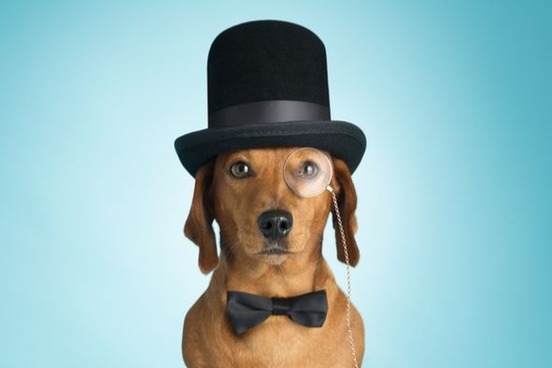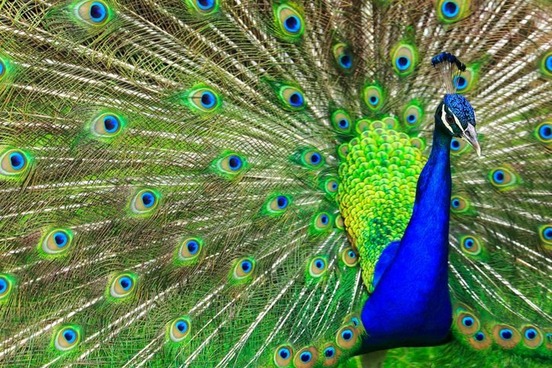
Snob
noun : one who has an offensive air of superiority in matters of knowledge or taste
Snobs weren't always the unbearable boors they are now. When the word snob was first in use in the early 18th century it referred to a cobbler (and we are quite certain that cobblers have always been a kindly sort). Over time, the word took on meanings directly related to class, first referring to one who was not an aristocrat. By the middle of the 19th century it referred to fawning types who try to ingratiate themselves to their perceived superiors, and by the beginning of the 20th it referred to the sufferers of superiority complexes we know today.
MORE TO EXPLORE: Why Were Shoemakers 'Snobs'?

High Horse
noun : an arrogant and unyielding mood or attitude
If you're on a horse, you're likely looking down at anyone nearby who is not similarly equinely elevated. If you're on a high horse, everyone else is that much further below you. (Which, uh, how nice for you.) The term high horse dates to a time when an English speaker's likelihood of being on a horse was considerably greater than it is today: currently our earliest evidence of it in use is from the 1780s.

Toplofty

Orotund
adjective : pompous, bombastic
Orotund is more often used to describe what a person produces than it is used to describe a person. It can be both complimentary and not: when orotund describes a voice, it is a synonym of sonorous, and communicates fullness, strength, and clarity of sound. When it describes words presented for an audience, however, it often bears with it an amount of annoyance: an orotund speech isn't typically a top pick for speech-attendees. The word is a modification of the Latin ore rotundo, meaning "with round mouth."

Sniffy
adjective : having or expressing a haughty attitude : disdainful, supercilious
There is a world of difference between one who is sniffy and one who is sniffly: the latter should be given some tissues and a "there, there"; the former deserves a roll of the eyes and little else. Sniffy is a 19th century term, and it comes from the image of a haughty or disdainful person sniffing scornfully at others. Sniffly appears to be a 20th century coinage from the word sniffle; current evidence dates the verb version of that word to the early 17th century and the noun to the early 19th.

Pontifical
adjective 1 : pompous 2 : pretentiously dogmatic
Regardless of one's feelings about pontiffs, there is no question that popes tend toward formality, a quality that frequently sidles up to pompousness. The word pontifical as a noun refers to either episcopal attire (and especially to the insignia of the episcopal order that a prelate wears when celebrating a particular kind of mass) or to a book containing the forms for sacraments and rites performed by a bishop. The adjective has technical religious meanings too, but in general use it means either "pompous" or "pretentiously dogmatic."

Pompatic
adjective : pompous
Pompatic is likely wholly unknown to the average English speaker's audience, which makes it fun to hurl at pompous people in phrases like "you pompatic varlet." The word was in the 16th century borrowed (predictably so, we think) from Latin—Late Latin, to be specific. In forebear pompaticus in that language means "showy, splendid." English speakers already had pompous when pompatic showed up: pompous dates to the 15th century and comes from the 14th century pomp, which traces back, via Anglo-French, to Latin pompa, "procession, pomp," ultimately the source of pompatic as well.

Altisonant
adjective : lofty or pompous : high-sounding
The origin of altisonant isn't remarkable: the alti- traces back to Latin altus, meaning "high," and the sonant comes from Latin sonare, meaning "to sound." The word has common relations by its second element: dissonant describes things not in harmony or agreement; consonant describes things that are in harmony or agreement (and refers to some speech sounds and their corresponding letters too). A more obscure but also more kindred relative is grandisonant, which means "giving the impression of grandeur."

Uppity
adjective : putting on or marked by airs of superiority : arrogant, presumptuous
The uppity among us might presume that they know everything worth knowing about uppity but we suspect they are wrong. Uppity, most probably a simple joining of up (as in "up on one's high horse") and the suffix -ity, meaning "quality, state, degree," is a child of the late 19th century. It was apparently an era of some appreciation for the pleasing rhythm created by lodging a dental plosive between a schwa and a high front vowel: biggety, persnickety (which had had older incarnation in pernickety), and snippety are all believed to date from that same time.

Supercilious
: coolly and patronizingly haughty
In the word supercilious hides a gesture that often communicates what the word itself communicates: a raised eyebrow. Supercilious is from the Latin supercilium, meaning "eyebrow." The meaning often implicit in a raised eyebrow was in the Latin word as well: in addition to meaning "eyebrow" it also meant "haughtiness." Note that at one time supercilious was a synonym of superciliary, which means "of, relating to, or adjoining the eyebrow."

Words for Misers and Cheapskates
Here are 11 ways to call someone out for being stingy.
SEE THE LIST >





